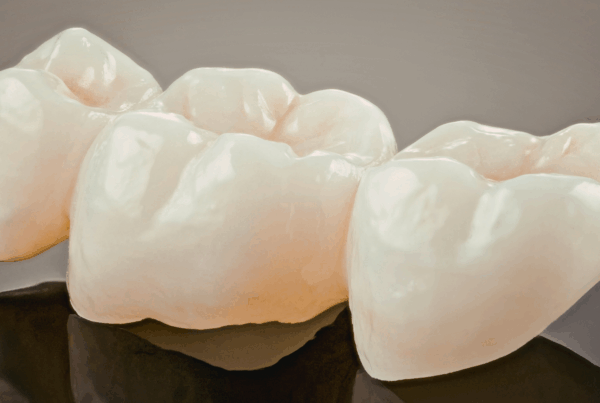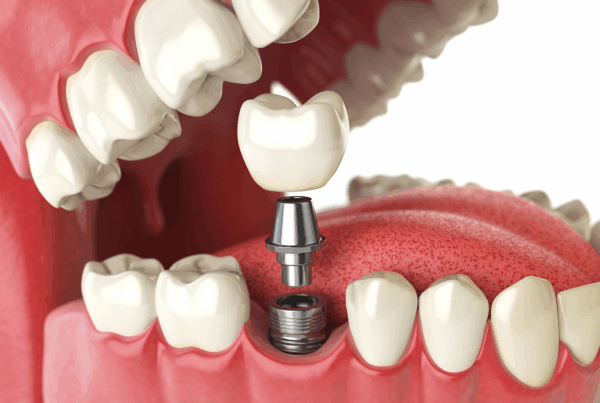Every smile tells a story and dental health is the author of that story. For those who have lost teeth due to decay, disease, or injury, dental implants have become a game-changer. Acting as artificial tooth roots, dental implants provide a strong foundation for fixed or removable replacement teeth. They look, feel, and function just like natural teeth – a key to a confident smile.
But are dental implants right for you? Let’s delve deeper into the advantages, potential downsides, and durability of dental implants.

What are the Advantages of Dental Implants?
Understanding the benefits of any dental procedure is the first stride towards making an informed choice. Dental implants come with a wealth of advantages that are reshaping smiles globally. Let’s expand on these compelling reasons why you might want to consider dental implants:
Improved Oral Health and Functionality
The beauty of dental implants lies in their design. Unlike tooth-supported bridges, dental implants don’t need any grinding or reduction of the surrounding healthy teeth. This factor alone already adds a layer of protection to your existing oral health.
But the benefits don’t stop there. Dental implants are inserted directly into the jawbone, providing a robust and stable support system for the new prosthetic teeth. This firm support means that your new teeth won’t slip or shift when you’re talking or eating, a common problem with removable dentures. So, with dental implants, you can laugh, speak, and eat with confidence, knowing your teeth are secure.
Moreover, this stability can lead to improved eating capabilities. There’s no need to shy away from your favorite foods out of fear of displacing your dentures or damaging your bridge. You can enjoy a diverse diet, which, in turn, could lead to improved overall health.
Natural Look and Comfort
One of the most praised advantages of dental implants is their ability to mimic natural teeth in both function and appearance. They’re designed to blend in seamlessly with your natural teeth, making it almost impossible to tell the difference visually.
But they don’t just look like real teeth; they feel like them too. Dental implants are designed to fuse with your bone, making them a permanent part of your oral structure. This integration ensures a level of comfort that removable dentures can’t match. You won’t have to deal with the inconvenience of removing your teeth for cleaning or the uncomfortable feeling of dentures rubbing against your gums. Dental implants become a part of you.
Boosts Self-esteem and Confidence
The power of a confident smile is undeniable. Missing or damaged teeth can significantly affect your self-esteem, causing you to hold back your laughter or cover your mouth when you smile. But with dental implants, you can regain a complete, healthy-looking set of teeth.
Dental implants can give you back your smile and, with it, your confidence. The psychological impact of feeling good about your smile can be transformative, improving social interactions, self-confidence, and overall happiness.
Durability and Convenience
Dental implants are an investment in your oral health, both now and for the future. With proper care and regular dental check-ups, dental implants can last a lifetime. This longevity outstrips other tooth replacement options, making dental implants a more cost-effective solution in the long run.
Moreover, dental implants bring a level of convenience that other options can’t. They eliminate the need for messy adhesives required to keep dentures in place. Plus, there’s no need for removing them for cleaning or while sleeping, like removable dentures. You can take care of them just like your natural teeth—regular brushing, flossing, and dental check-ups are all you need for maintaining your dental implants.

What is the Downside of Dental Implants?
While dental implants offer a plethora of advantages, we can’t overlook the potential downsides. To make an informed decision, it’s vital to fully understand these challenges. Let’s unpack these one at a time.
Surgical Procedure and Extended Healing Time
Firstly, remember that dental implants require surgery. While modern dentistry has advanced significantly, making the procedure relatively safe, it’s still surgery. Any surgical procedure brings inherent risks such as infection, nerve damage, or complications with anesthesia. There is also the potential for sinus problems if implants placed in the upper jaw protrude into the sinus cavities.
Additionally, post-surgery, the healing process is quite lengthy. The implant must integrate with the bone in a process known as osseointegration, which can take several months. This healing period requires patients to follow strict oral care routines to ensure proper recovery and implant success.
Higher Initial Costs
One of the major potential drawbacks of dental implants is the cost. Dental implants are generally more expensive upfront than other tooth replacement options, such as bridges or dentures. The overall costs can also increase if additional procedures, like bone grafts, are necessary to prepare your mouth for the implants.
While dental implants tend to be cost-effective in the long run due to their durability, the initial investment can be quite hefty. It’s crucial to discuss these costs with your dentist or your dental insurance provider to understand what’s covered and what isn’t, and to plan your budget accordingly.
Not Suitable for Everyone
While dental implants are a fantastic solution for many, they are not suitable for everyone. Certain health conditions and lifestyle habits can affect the success of dental implants.
Uncontrolled diabetes, for instance, can interfere with the healing process post-surgery. Similarly, cancer patients or those who have undergone radiation therapy to the jaws might experience lower success rates with dental implants.
Lifestyle choices, such as smoking or excessive alcohol consumption, can also hinder the success of dental implants. Smoking impairs blood flow, disrupting the healing of the surgical site, while alcohol can interfere with the osseointegration process.
Lastly, if you have uncontrolled periodontal (gum) disease, this could pose a problem. Healthy gums are critical for the success of dental implants, as advanced gum disease might lead to bone loss, a key component for the stability of implants.
All these potential downsides are why it’s so important to have an in-depth discussion with your dental professional about your medical history and lifestyle habits. They can help assess your suitability for dental implants, explore alternatives if necessary, and provide advice on how to increase your chances of a successful dental implant procedure.

How Long Does a Dental Implant Last?
The longevity of a dental implant is influenced by several factors, including oral hygiene practices, the patient’s overall health, and the expertise of the dental professional.
Lifespan of Dental Implants
Typically, dental implants can last many years, even a lifetime, when properly placed and cared for. Studies show that over 95% of implants are successful, even after 10 years.
Factors Influencing the Lifespan
Regular dental check-ups, brushing, flossing, and avoiding harmful habits like smoking can contribute to the durability of dental implants. Overall health conditions, such as diabetes, can also impact the lifespan of implants.

Schedule Your Consultation Today!
While dental implants may not be a one-size-fits-all solution, they have undeniably revolutionized restorative dentistry. If you’ve been considering dental implants, now is the time to take the next step. Contact us at Encino Dental Studio to schedule a consultation. Our expert team can help assess your needs, answer any questions, and guide you on your journey towards a healthier, brighter smile.








